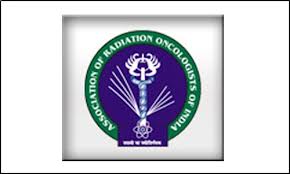 The academic council of Malabar Cancer Centre is holding the Young Radiation Oncologists’ Conference at Pearl view Regency,Thalassery, Kerala from 2nd – 3rd February 2013. This conference is being organized along with the Young Oncologists Wing of the Association of Radiation Oncologists of India (AROI). Spread out over one and half days the conference aims to serve as a platform for over 100 young radiation oncologists from the Indian subcontinent to “Learn, Share and Grow together”. In addition this conference will also see the inauguration of the Young Oncologists Wing of the Association of Radiation Oncologists of India by the President AROI Professor Ramesh Bilimagga.
The academic council of Malabar Cancer Centre is holding the Young Radiation Oncologists’ Conference at Pearl view Regency,Thalassery, Kerala from 2nd – 3rd February 2013. This conference is being organized along with the Young Oncologists Wing of the Association of Radiation Oncologists of India (AROI). Spread out over one and half days the conference aims to serve as a platform for over 100 young radiation oncologists from the Indian subcontinent to “Learn, Share and Grow together”. In addition this conference will also see the inauguration of the Young Oncologists Wing of the Association of Radiation Oncologists of India by the President AROI Professor Ramesh Bilimagga.
Radiation Oncology is a branch of medicine where high doses of radiation are used to kill cancer cells. This non invasive treatment modality has been in use since the discovery of Radium and is a shining example of utilization of the advances in physics, biology, mathematics and computing technology in modern medicine. Despite being a century old, new advances and technologies are introduced in the field every year that allow the treating physician to target the tumour with greater precision and accuracy while sparing the normal tissues from side effects. The last decade has witnessed the widespread clinical use of high precision technologies like conformal radiotherapy, intensity modulated radiotherapy, image guided brachytherapy, particle therapy, stereotactic radiation therapy etc. While these have resulted in a progressive improvement in the control of the cancer they have also resulted in a reduction in the side effects experienced by the patients in the long run thereby preserving the quality of life and allowing a faster return to the normal life. The wider use of this treatment has allowed the development of organ preservation protocols Radiation Oncology is used for all cancer stages and has an important role to play in the treatment of nearly 60 – 70% of cancers. Statistics from the Indian Council of Medical Research show that nearly 70 – 80% of cancer patients will receive some form of radiation therapy during their life time and that it is the most frequently used treatment modality for the treatment of cancers in the country. Given this pivotal role of radiation therapy it is perhaps unsurprising that presently radiation oncology is one of the fastest growing branches in medicine.
Malabar Cancer Center is the première cancer research and treatment centre in Northern Kerala. The high end dual energy linear accelerator was installed in MCC in November 2011 and inaugurated by Hon’ ble Chief minister in April 2012 machine is capable of fast IMRT delivery using the Rapidarc delivery technology so that complex IMRT radiation plans can be delivered in two minutes instead of the usual 20 minutes with conventional IMRT. In addition the machine is equipped with a special device which allows the treating physician to take CT scans of the patient while the patient is lying on the treatment table. This increases the treatment accuracy manifold allowing the treating physician to focus the radiation treatment more precisely. Malabar Cancer Centre is one of the few public sector institutes in the country where Rapidarc IMRT is used in the routine treatment of cancer patients giving even the poorest citizen the benefit of high precision radiotherapy.. After the acquisition of the new 1.5 tesla MRI in the last quarter of 2012 the department is planning to start image based barchytherapy which is the latest development in precision brachytherapy. To further foster cutting edge research, the department is planning to start a dedicated radiobiology laboratory where sophisticated research can be conducted on how radiation acts at the genetic level and potentially develop new therapies and targets that enhance the effect of radiation.
The conference will be graced by the presence of eminent Radiation Oncologists of international repute like Professor Ramesh Bilimagga, Dr Siddharth Laskar, Dr D N Sharma, Dr Kilara, Dr G V Giri and others. The conference will be seeing about 50 oral presentations spread out over one and half days in 11 sessions. Each session will have 4 -5 presentations from young oncologists from different parts of the country as well as our neighbouring nations. Each will be moderated by an eminent panel of faculty who will be coming from different première institutes of the nation including AIIMS, PGIMER, TMH, RCC Trivandrum, JIPMER, CMC Vellore etc. The deliberations in these sessions will ensure an exchange of ideas related to various aspects of radiation oncology in the respective topics. The scientific committee has ensured that all presenters present data from research that has been conducted in India by the young generation of oncologists.
